A mystic is anyone who has the gnawing suspicion that the apparent discord, brokenness, contradictions, and discontinuities that assault us every day might conceal a hidden unity. Lawrence Kushner
 A while ago Jeanne and I were in the car listening to the hourly news update on NPR. As usual, they were trying to stuff as much horrible news as possible into a three-minute segment. Ebola, ISIS, Zika, Palestinians, Israel, Istanbul, Russia, illegal immigrants, racial discrimination— one of us said “they’re never going to figure this out.” I forget which of the above items the comment was referring to, but it could have been any of them. I know few people who are more naturally optimistic than I am,
A while ago Jeanne and I were in the car listening to the hourly news update on NPR. As usual, they were trying to stuff as much horrible news as possible into a three-minute segment. Ebola, ISIS, Zika, Palestinians, Israel, Istanbul, Russia, illegal immigrants, racial discrimination— one of us said “they’re never going to figure this out.” I forget which of the above items the comment was referring to, but it could have been any of them. I know few people who are more naturally optimistic than I am,  but what evidence is there that we human beings are up to the challenge of solving our problems long-term in a sustainable way? The history of our species provides ample evidence to the contrary.
but what evidence is there that we human beings are up to the challenge of solving our problems long-term in a sustainable way? The history of our species provides ample evidence to the contrary.
So what impact should this depressing and dour news have on a person not inclined toward cynicism or despair? I must admit that I would find it very difficult to avoid cynicism in general, overcome only by dogged attempts to make my little corner of the world a bit better on a daily basis, were it not that I am convinced that the often sad and grubby human story that is trumpeted at us 24/7 through multiple media outlets is not the only story in town. There’s something bigger going on. In other words, I believe in God. So sue me.
 For many the conversation stops right there. How on earth can an educated, relatively intelligent person with working senses possibly believe in the existence of God in the face of the massive evidence to the contrary that threatens to overwhelm us daily? Please note, though, that I said that I believe in God, not that I believe in the existence of God. This is a gradual, seismic internal shift that has been going on for a while, one that I have frequently taken note of in various ways during the almost-four years of this blog’s existence (and for a lot longer than that).
For many the conversation stops right there. How on earth can an educated, relatively intelligent person with working senses possibly believe in the existence of God in the face of the massive evidence to the contrary that threatens to overwhelm us daily? Please note, though, that I said that I believe in God, not that I believe in the existence of God. This is a gradual, seismic internal shift that has been going on for a while, one that I have frequently taken note of in various ways during the almost-four years of this blog’s existence (and for a lot longer than that). 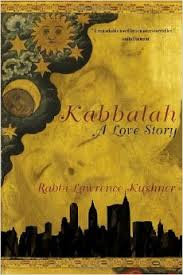 Two short books, Marcus Borg’s Convictions and Lawrence Kushner’s Kabbalah: A Love Story, have crystallized this shift in unexpected ways. Let me explain.
Two short books, Marcus Borg’s Convictions and Lawrence Kushner’s Kabbalah: A Love Story, have crystallized this shift in unexpected ways. Let me explain.
The “does God exist?” question never had much philosophical interest for me (I don’t think any of the arguments designed to answer the question positively actually work very well);  over time I have lost interest in it just about entirely. The God whose existence is almost always in question is a being separate and distinct from the universe, a supreme being who created the universe a long time ago. This description usually goes on to add personality traits such as omnipotence, omniscience and omnibenevolence to God’s resume; God thus described is often imagined with authoritarian and parental attributes, with all of the positive and negative baggage accompanying. Marcus Borg calls belief in the existence of this being “Supernatural Theism.” For non-theists who deny the existence of God, it is almost always the God of Supernatural Theism whose existence is being denied; it is this God that is the target of the impassioned attacks of the “New Atheists.”
over time I have lost interest in it just about entirely. The God whose existence is almost always in question is a being separate and distinct from the universe, a supreme being who created the universe a long time ago. This description usually goes on to add personality traits such as omnipotence, omniscience and omnibenevolence to God’s resume; God thus described is often imagined with authoritarian and parental attributes, with all of the positive and negative baggage accompanying. Marcus Borg calls belief in the existence of this being “Supernatural Theism.” For non-theists who deny the existence of God, it is almost always the God of Supernatural Theism whose existence is being denied; it is this God that is the target of the impassioned attacks of the “New Atheists.” 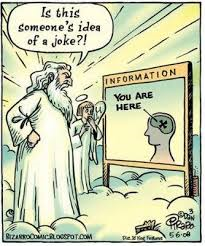 Borg notes that when someone tells him that she or he does not believe in God, he “learned many years ago to respond, ‘Tell me about the God you don’t believe in.’ It was always the God of supernaturalism.” Borg professes that he stopped believing in that God when he was in his twenties (he passed away in his seventies about a year ago). I don’t believe in that God either.
Borg notes that when someone tells him that she or he does not believe in God, he “learned many years ago to respond, ‘Tell me about the God you don’t believe in.’ It was always the God of supernaturalism.” Borg professes that he stopped believing in that God when he was in his twenties (he passed away in his seventies about a year ago). I don’t believe in that God either.
It isn’t that I now believe in the existence of a divine being with a different resume. It’s rather than I think “does God exist?” is the wrong question. Because the issue of God for me is not existential—it’s not about whether there is another being out there in addition to the universe. The issue of God is experiential. Scripture says “taste and see that the Lord is good,” and tasting and seeing are not arguments, rationalizations or proofs. Borg describes the shift I have in mind well:
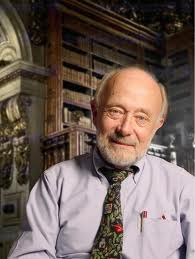 There is a cloud of witnesses, Christian and non-Christian, for whom God, the sacred, is real, an element of experience, not a hypothetical being who may or may not exist and whom we can only believe in.
There is a cloud of witnesses, Christian and non-Christian, for whom God, the sacred, is real, an element of experience, not a hypothetical being who may or may not exist and whom we can only believe in.
Both Borg and Kushner call this orientation “mysticism,” and both refer to experiences that might be described as “mystical” that helped bring them to this experiential conclusion. I’m not crazy about calling myself a “mystic” for a number of reasons, but I do resonate with Kushner’s definition at the beginning of this post, just as I resonate with Borg’s adjustment of what the word “God” refers to:
A theology that takes mystical experience seriously leads to a very different understanding of the referent of the word “God.” The word no longer refers to a being separate from the universe, but to a reality, a “more,” a radiant and luminous presence that permeates everything that is.
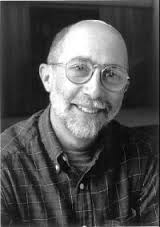 Kushner refers to the “gnawing suspicion” that there is a hidden unity underlying all of the mess that we find ourselves in. “Suspicion” is a well-chosen term, because a reorientation from Supernatural Theism to Mystical Theism (as Borg calls it; Kushner calls it “mystical monism”) is difficult to talk about and impossible to provide convincing arguments for. Words fail me, although I keep trying to find them. More often than not I fall back on the evidence of a “changed life” and “come and see,” finding strength in the fact that those who have also experienced the sacred and have not just thought about it resonate with me on a level deeper than words. They just “know” what I am trying to convey.
Kushner refers to the “gnawing suspicion” that there is a hidden unity underlying all of the mess that we find ourselves in. “Suspicion” is a well-chosen term, because a reorientation from Supernatural Theism to Mystical Theism (as Borg calls it; Kushner calls it “mystical monism”) is difficult to talk about and impossible to provide convincing arguments for. Words fail me, although I keep trying to find them. More often than not I fall back on the evidence of a “changed life” and “come and see,” finding strength in the fact that those who have also experienced the sacred and have not just thought about it resonate with me on a level deeper than words. They just “know” what I am trying to convey.
Working out the implications of where this takes me on all sorts of issues is a continuing effort in these pages. Returning briefly to where I began, what might mystical theism say about the fractured and disjointed world in which we live? 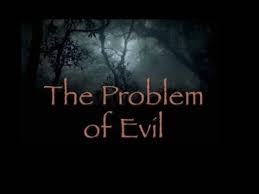 Trying to square such a world with the God of Supernatural Theism gives rise to the problem of evil, perhaps the most intractable philosophical/ theological problem of all. But as Kushner suggests, there is a different orientation available.
Trying to square such a world with the God of Supernatural Theism gives rise to the problem of evil, perhaps the most intractable philosophical/ theological problem of all. But as Kushner suggests, there is a different orientation available.
If you are a mystic, saying you believe in God means that you have an abiding suspicion that everything is a manifestation of God, and no matter how horrific it might be, it is still, somehow, filled with holiness.
The only evidence for that is experiential, and even such experience is iffy and enigmatic. I have not had the “road to Damascus” sorts of experiences that have changed the lives of many. My reorientation has been more gradual, which for me means it is likely to have the permanence that a “once for all” experience might lack. 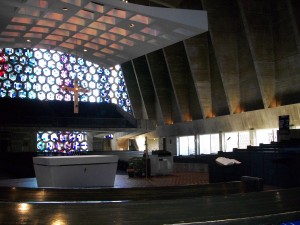 As I sat for many weeks in daily prayer with Benedictine monks several years ago, the reorientation began as I noticed a slow opening of peaceful spaces inside and a new way of seeing what is around me. This does not conflict with my intellect, my mind or my philosophy—it holds them in place. And when I run out of convincing words, I plan to remember this that I just read from Lawrence Kushner:
As I sat for many weeks in daily prayer with Benedictine monks several years ago, the reorientation began as I noticed a slow opening of peaceful spaces inside and a new way of seeing what is around me. This does not conflict with my intellect, my mind or my philosophy—it holds them in place. And when I run out of convincing words, I plan to remember this that I just read from Lawrence Kushner:
Why is it that you cannot simply tell someone a great religious truth without a whole rigmarole of questions and hints, allusions and mysteries? It is because that is the way God made the world.












